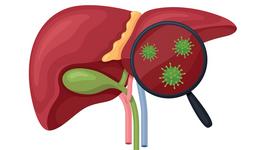Korro Bio to Begin RNA-Editing Trial in Alpha-1 Antitrypsin Deficiency
CMN Intelligence - The World’s Most Comprehensive Intelligence Platform for CRISPR-Genomic Medicine and Gene-Editing Clinical Development
Providing market intelligence, data infrastructure, analytics, and reporting services for the global gene-editing sector. Read more...
Korro Bio, headquartered in Massachusetts, recently announced that it has received approval from the Australian Bellberry Human Research Ethics Committee and clearance from the Australian Therapeutic Goods Administration to initiate a Phase 1/2a clinical trial of KRRO-110 in patients with alpha-1 antitrypsin deficiency (AATD).
AATD is a rare, incurable genetic condition that increases the risk of developing severe lung and liver disease, including emphysema, cancer, and organ failure. The disease most commonly arises through a single missense G-to-A mutation (known as the PiZ mutation) in the SERPINA1 gene that either reduces the quantity or impacts the functionality of the alpha-1 antitrypsin (AAT) protein, which is produced by the liver and protects the lungs. Accumulation of abnormal AAT in the liver causes hepatic damage over time. The disease is estimated to affect approximately 250,000 individuals worldwide.
Current treatment approaches predominantly aim to control symptoms and reduce risk factors. Augmentation therapy, a lifelong treatment involving the administration of AAT protein derived from donor blood, can increase AAT levels in the lungs and slow lung damage, though it does not prevent liver damage. Lung and liver transplants may be an option for patients with severe disease, although donor organs are not easy to obtain and the surgeries carry a high risk of complications.
KRRO-110 is designed to correct most severe form of AATD
KRRO-110 is the first RNA-editing oligonucleotide product candidate from Korro’s proprietary RNA-editing platform called Oligonucleotide Promoted Editing of RNA (OPERA™). The candidate consists of an RNA-editing oligonucleotide encapsulated in a lipid nanoparticle (LNP) that is delivered systemically to reach the liver.
KRRO-110 is designed to co-opt an endogenous RNA-editing enzyme known as ADAR (adenosine deaminase acting on RNA). This strategy leads to the correction of the pathogenic “A” variant (PiZ) on SERPINA1 RNA, using the LNP-delivered RNA-editing oligonucleotide to repair the PiZZ genotype that is responsible for the most severe form of AATD. Repair of this G-to-A variant restores secretion of normal AAT protein. This has the potential to clear protein aggregates from within liver cells to confer a potentially clinically differentiated benefit for liver function and to preserve lung function by providing a healthy level of normal AAT protein.
Pre-clinical data presented earlier this year at the American Thoracic Society International Conference revealed that KRRO-110 showed sustained editing efficiency of approximately 60% and increased total AAT protein levels to greater than 60uM at Week 13 in an in vivo genetic AATD mouse model, which exceeds the minimum threshold considered to have a therapeutic impact in patients.
The REWRITE trial of KRRO-110
KRRO-110 will be investigated in the Phase 1/2 REWRITE trial, which is designed as a two-part single- and multiple dose-escalating study to evaluate safety and tolerability in up to 64 participants, including healthy adults and clinically-stable AATD patients with the PiZZ genotype. Secondary and exploratory endpoints including pharmacokinetic and pharmacodynamic parameters will guide optimal dose selection for later stage studies.
According to the recent press release, dosing is anticipated to begin in the first quarter of 2025, with interim data expected in the second half of 2025 and study completion anticipated in 2026.
Other ongoing gene-editing trials for AATD
Beam Therapeutics is developing a base-editing therapeutic candidate, BEAM-302, to address the underlying cause of AATD by precisely correcting the PiZ mutation in genomic DNA. BEAM-302 is being evaluated for safety, pharmacodynamics, pharmacokinetics and efficacy in an ongoing Phase 1/2 trial. You can read more about BEAM-302 in a previous clinical trial update here.
Wave Life Sciences is developing WVE-006, a GalNAc-conjugated RNA-editing oligonucleotide designed to correct the PiZ mutation in SERPINA1 mRNA. Last year, WVE-006 became the first-ever RNA-editing programme to enter clinical development, and the candidate is currently being evaluated in two clinical trials: the Phase 1 RestorAATion study to assess the safety, tolerability, and pharmacokinetics of WVE-006 compared to placebo in healthy participants following a single- and multiple doses, and the Phase 1b/2a RestorAATion-2 study to assess the safety, tolerability, pharmacodynamics, and pharmacokinetics of WVE-006 in patients with AATD.
We will continue to update you on the REWRITE trial as new details emerge. In the meantime, you can find all of our coverage on clinical-stage gene editing programmes here.
For a complete overview of current gene editing clinical trials, check out CRISPR Medicine News' Clinical Trials Database.
To get more CRISPR Medicine News delivered to your inbox, sign up to the free weekly CMN Newsletter here.
Tags
ArticleNewsClinical News UpdatesAlpha-1 Antitrypsin Deficiency, AATDRNA editingADAR (adenosine deaminase acting on RNA)Korro Bio
CLINICAL TRIALS
Sponsors:
Base Therapeutics (Shanghai) Co., Ltd.
Sponsors:
Base Therapeutics (Shanghai) Co., Ltd.







